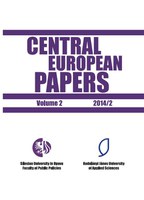The Central-European Economic Effects of the World War I
The Central-European Economic Effects of the World War I
Author(s): Ferenc SzávaiSubject(s): History
Published by: Slezská univerzita v Opavě, Fakulta veřejných politik
Keywords: government asset; war loan; inflation; disintegration; expropriation; option; joint tribunal; economic self-sufficiency; Treaty of Trianon; Kingdom of Hungary; Austrian Republic
Summary/Abstract: The First World War brought total economic exhaustion to the Central-European region. It caused problems in the workforce, and finances. Together with inflation, it emerged in the form of a serious government debt. The agricultural balance of the world was lost, as well as the system of financial gold standard. In this, new, Central-European region, the typical form of existence was the economy of self-supply, and the policy of seclusion. After the dissolution of the great economic unity, the national assets became the possession of the former member states of the Monarchy; however, in numerous cases it gave grounds for quarrels and complaints. Among these, in this study, I concentrated on the cases of options, pension provisions and old crown accounts.
Journal: Central European Papers
- Issue Year: 2/2014
- Issue No: 2
- Page Range: 164-178
- Page Count: 15

